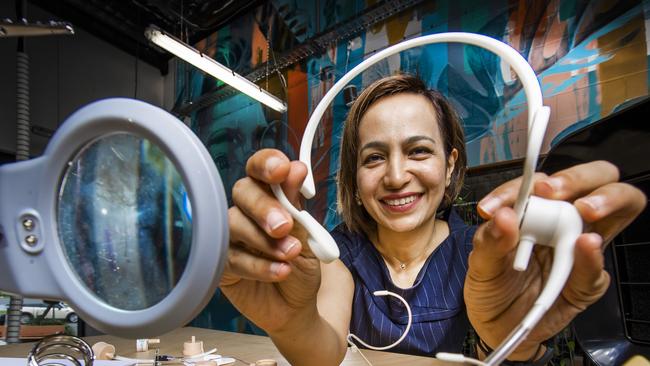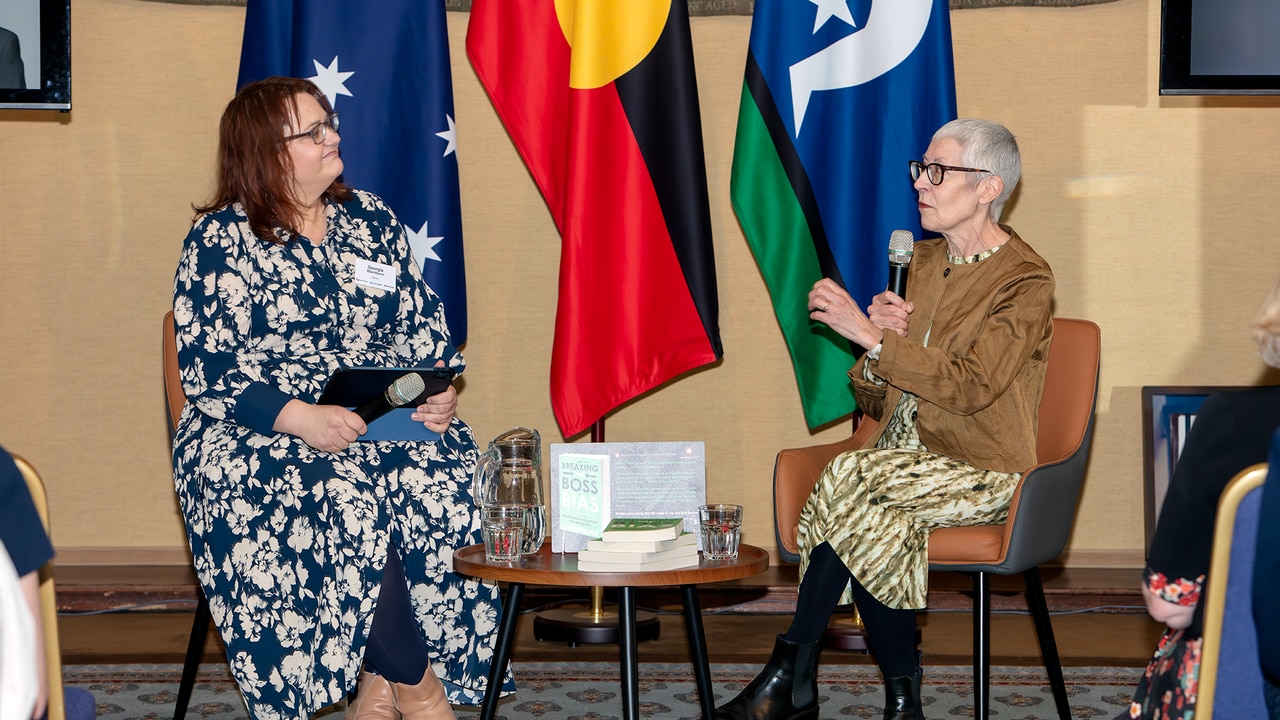The Australian’s Australian of the year: Innovator Farzaneh Ahmadi uses power of AI to change lives
Amid the deep fakes and ‘brain rot’, Australian innovator Farzaneh Ahmadi harnessed the technology likely to define the next decade in order to bring hope to thousands.

The world may look back on 2024 as the year AI was introduced globally. And amid the deep fakes, ChatGPT and “brain rot” that came with it, one Australian innovator harnessed the technology likely to define the next decade in order to bring hope to thousands.
Farzaneh Ahmadi is The Australian’s latest nomination for Australian of the Year.
Dr Ahmadi is the Brisbane-based founder and chief executive of the Laronix, a non-invasive bionic voice box that uses AI-based voice cloning to generate “true voice” and function in place of a larynx.
The device was invented largely for survivors of laryngeal cancer, the second-most common form of head and neck cancer, with nearly 185,000 people globally diagnosed in 2020.
“More than half a million people around the globe who live with this condition sadly have the second-highest suicide rate among all cancer survivors,” Dr Ahmadi told the ABC.
“We live in a society where we are very impatient about voice disabilities. We don’t wait for people with voice disabilities to catch up,” she said. “That was the point that we decided to change the status quo and then develop a solution that changed their lives.”
Dr Ahmadi first encountered the field of voice cloning while completing her PhD, but felt frustrated at having to turn away patients who came to her group seeking practical solutions rather than research.
Prior to the Laronix, the field had largely been neglected by device makers for more than 40 years, leaving survivors with a surgically implanted robotic voice that had no female voice available. “Voices are an inherently personal part of a person’s character and for women in particular, there have been no female voices available for those who have had their larynx removed. The Laronix voice box changes that, having both male and female-sounding voices,” Dr Ahmadi said.
Years later the world-first device gave cancer survivor Bobbi Lehman-Horn a voice for the first time in seven years.
“This has given me hope,” Ms Lehman-Horn said. “I was isolated from life to a large degree. I avoided parties and groups because I couldn’t communicate. This will let me out of that jail and allow me to be ‘normal’.”
In 2024, the Laronix went from a regional project to a worldwide innovation. As of October, the company had raised $4m from government grants and investors and now has offices in New York as well as Brisbane.





To join the conversation, please log in. Don't have an account? Register
Join the conversation, you are commenting as Logout